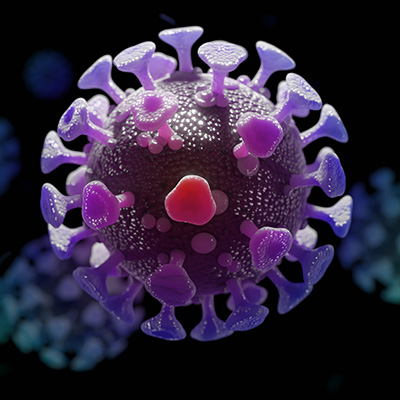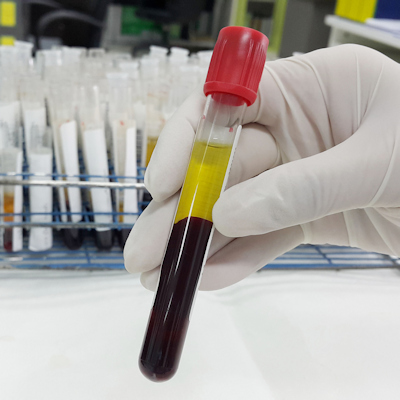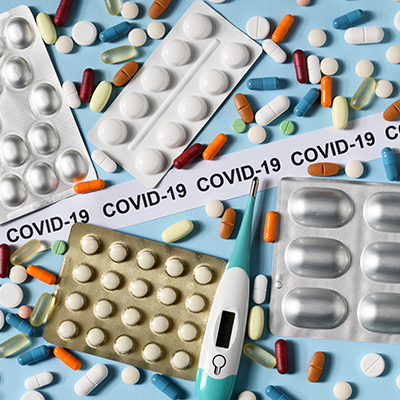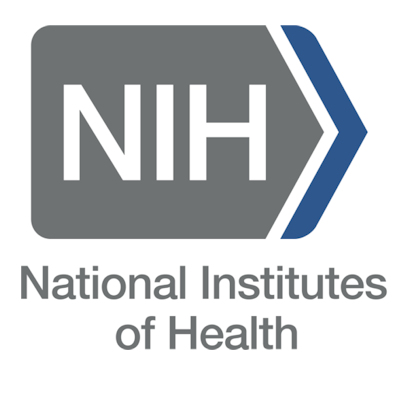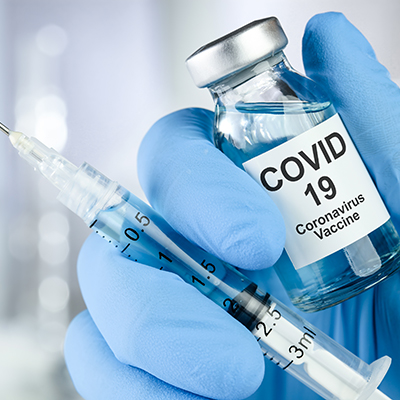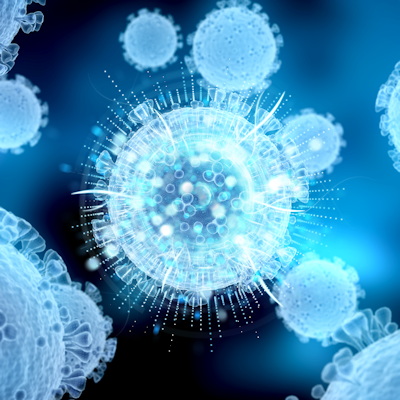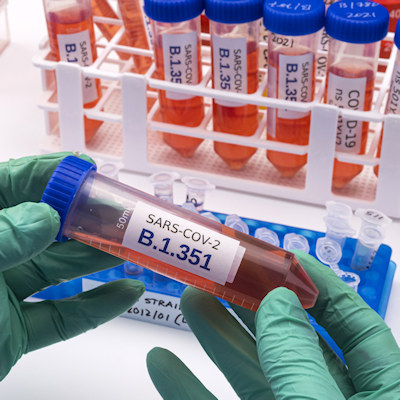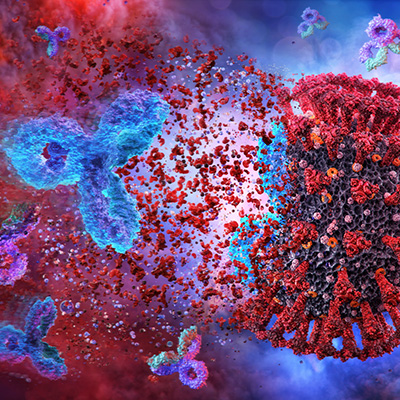April 3, 2023 -- During the COVID-19 pandemic, healthcare providers nationwide administered an evolving array of monoclonal antibody treatments, previously untested on such a large scale. A study published Monday in the Annals of Internal Medicine showed that this effort saved lives.
Monoclonal antibodies are human-made antibodies designed to prevent pathogens -- in this case, the SARS-CoV-2 virus -- from entering human cells, replicating, and causing illness. The U.S. Food and Drug Administration (FDA) granted emergency use authorization (EUA) to five different COVID-19 monoclonal antibody treatments between 2020 and 2022. All were restricted to people over age 12 considered to be at high risk for serious COVID-19 outcomes. The treatments needed to be administered intravenously or through injection by clinicians. As the virus evolved, new monoclonal antibodies were introduced, and older, less-effective ones removed.
Starting with the first authorization late in 2020, the University of Pittsburgh School of Medicine (UPMC) opened dozens of clinics, set up emergency department infrastructure, and arranged home visits to maximize its provision of monoclonal antibodies to Pennsylvania, New York, and Maryland residents.
After the EUA was revoked for the last monoclonal antibody on November 30, 2022, UPMC gathered anonymous clinical data on 2,571 patients treated with monoclonal antibodies and compared them with data from 5,135 patients with COVID-19 who were eligible for monoclonal antibodies but did not receive them. On average, patients who received monoclonal antibodies within two days of a positive COVID-19 test reduced their risk of hospitalization or death by 39% compared to peers who did not receive this treatment. Immunocompromised patients, regardless of age, had an even greater reduced risk.
Patients treated when the Alpha and Delta variants of the virus were circulating experienced greater benefits than their untreated peers compared to those treated during the Omicron variant phase, likely because earlier variants were deadlier, and people had less immunity from previous infection or vaccination. By the time of Omicron's onset, the risk of death and hospitalization had fallen, so monoclonal antibody treatments had reduced benefits overall -- however, vulnerable patients benefited more.
The task of getting these treatments to people in need was difficult and the real-world benefits initially uncertain for monoclonals that -- while proven safe and effective in clinical trials -- were based only on laboratory data. However, the researchers concluded that pushing through the many challenges to provide monoclonal antibodies was worth the effort, which unequivocally saved lives and prevented hospitalizations.
"Nobody can say with certainty that a future variant won't be more deadly," co-author Erin McCreary, UPMC's director of infectious diseases improvement and clinical research innovation, noted in a statement. "Should that happen, our real-world data give reassurance that investing in the infrastructure and healthcare worker knowledge to quickly provide antibody treatments keeps people in the communities we serve alive and out of the hospital."
Copyright © 2023 scienceboard.net




